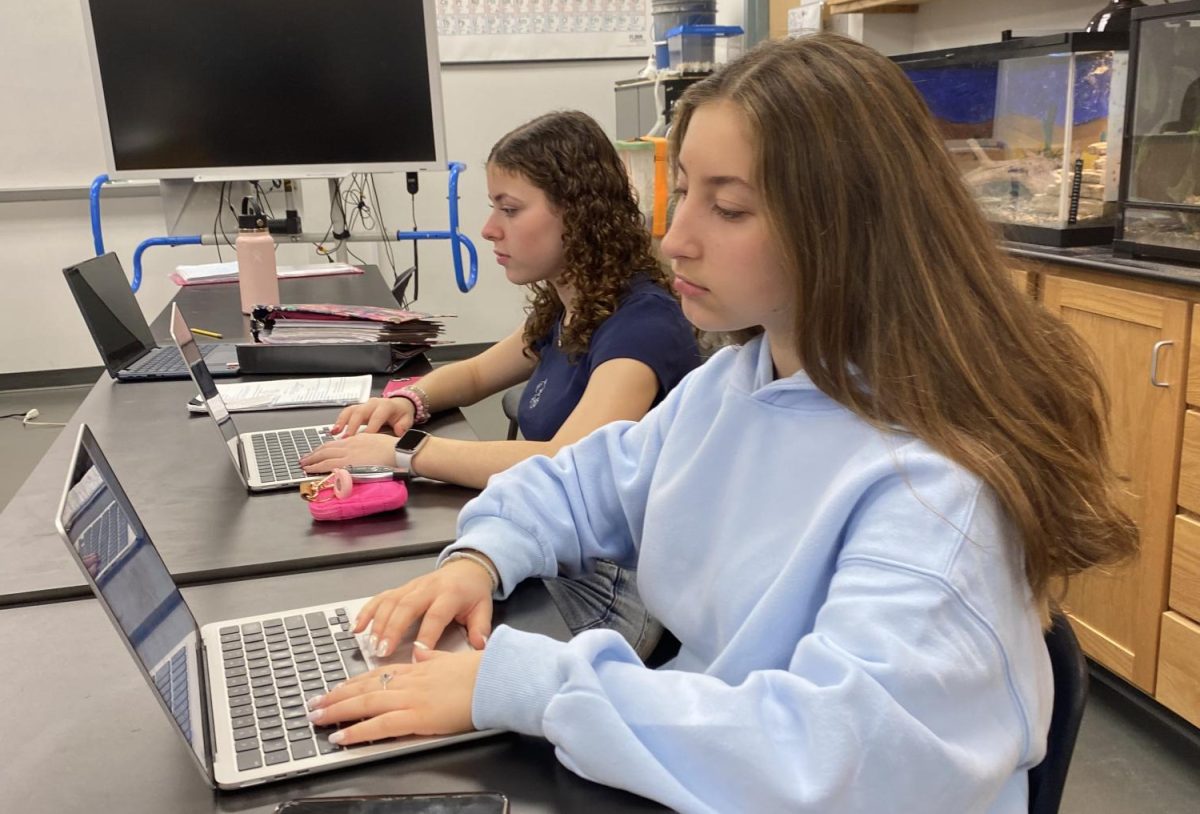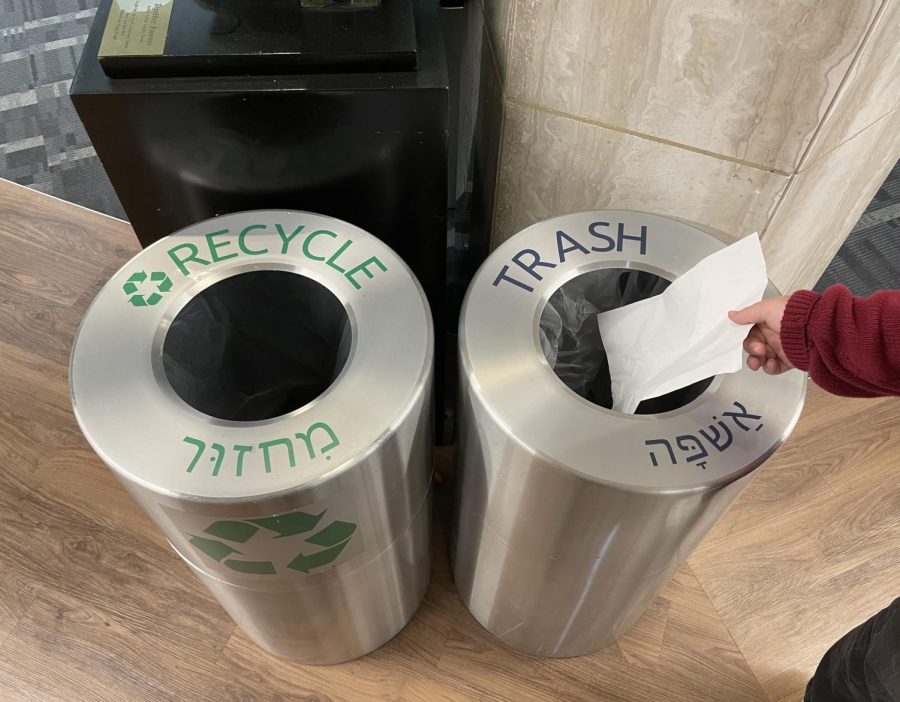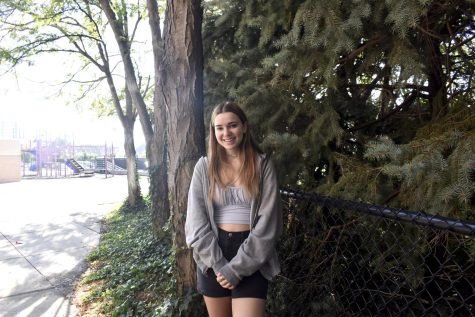Our Planet’s in Danger: Will Gen Z be the Savior?
March 21, 2023
It is no absurd claim to say that the Earth is in grave danger. Today, the unfortunate truth is that we reside in an environment threatened greatly by the effects of climate change from both irreversible actions of the past as well as continually problematic present activity.
Gen Z in particular is a generation more fixated on influencing change than any before it. According to a 2021 Pew Research poll, 67 percent of Gen Z adults in the U.S. believe that efforts to protect the climate should be the top national priority, in comparison to only 57 percent of Boomer and older generation adults.
With that priority in mind, Gen Z has made many strides in the fight to combat climate change. Greta Thunberg, for example, is perhaps the most well-known climate activist in the world, and she is only 20-years old. In addition, the growing presence of social media in everyday life has also allowed younger Gen Z members to get involved in preservation efforts, through self-education and spreading awareness online.
Despite this promising prelude, I find it ever so common for my fellow Gen Z members to advocate for combating climate change but fall short in acting on those ideals. At HBHA, we often have an annual “recycling talk” or “climate change talk” during our mentoring period. What it ultimately ends in, though, is students admitting that the ugly facts of climate change are alarming… just for the bell to liberate their heads from all those thoughts of fear, maybe even prompt a paper handout to be thrown away upon exiting the room.
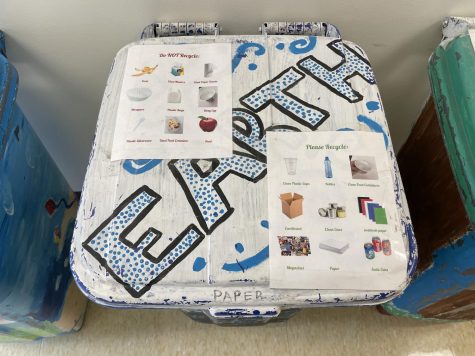
Wanting to better grasp the gravity of the issue, I conducted a survey of a body of middle and high school students to better understand Gen Z’s environmentally harmful habits.
I first asked respondents to rank their personal awareness of climate change on a scale of one to four, one being the least aware and four the most. 69.5% selected three or four, and only four of 115 respondents selected the number one, so I found it justified to assess the results with the impression that most respondents are generally aware of climate change’s present circumstances.
Although a majority of 90.4% of respondents said they recycle at home, only 33 percent of them compost. I found this of note because 20 percent of global greenhouse gas emissions come from food waste due to the methane it releases into the atmosphere when it ends up in landfills.
Also noteworthy, yet unsurprising to me, was that 20.9% of respondents typically take the store-provided plastic grocery bags every time they go grocery shopping, and an additional 35.7% typically use paper bags but never bring reusable bags. In 2022, it was recorded that an average American household takes 1.6 trips to the grocery store per week, so if these numbers are applied to the entire US population, grocery bags produce a massive amount of weekly waste.
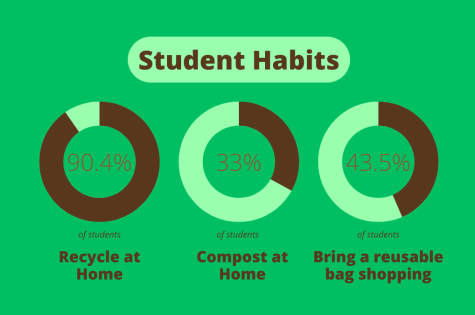
Photo by Aviva Clauer
A third of respondents also said they had knowingly or possibly purchased from a fast fashion brand recently or regularly. As a teenager on social media myself, seeing Gen Z endorse environmentally (as well as ethically) problematic brands like Shein, for example, has long frustrated me.
So, with all this data in mind, the question of why Gen Z often acts in environmentally unfriendly ways remains. Maybe it’s confounding variables, like fast fashion being an easy outlet for inexpensive clothing for those in need of that (although to that claim I will forever respond: thrift stores exist!), or genuine forgetfulness becoming humanly habitual. After all, I speak now of my opinion, but have likely acted in these self-condemned ways myself from time to time.
How can we bridge the gap? How can we convince Gen Z to match our care for the climate with active protection of it?
According to my poll, a lot of wrongful action for people in my generation actually derives from inadequate education on personal influence. 21.7% of respondents answered that they want to live more sustainably in the future but don’t know how, and another 26.1% agreed but considered their probability to do so unrealistic. Similarly, 40.9% of respondents said they want to help solve climate change but are unsure how to, while another 20.9% said they don’t think they can personally contribute to any change as it is out of their hands.
But both uneducated and defeatest perspectives are totally understandable. Just last week, the Biden Administration approved the Willow Project, an oil drilling project in Alaska which had been widely protested, online in particular, for introducing irreversible detriment to the environment. When a change.org petition with over three million signatures failed to make an impact, how can individual action accomplish anything at all?
That’s the mindset that needs to be overcome. By being deprived of resources that teach how to lead more sustainable lives, middle and high school students aren’t only pessimistic about habit changes, but are actually unable to visualize changing them at all. It’s as straightforward as that.
At HBHA, reversing this mindset is one of many goals of Holchim Yarok, a student-led club that intends to integrate education on recycling and the environment into schoolwide programming and initiatives, which I take part in.
In a recent program, we introduced climate change subject matter in stages, allowing a clear connection to be drawn between personal actions and environmental impacts. We first had students think about day-to-day personal habits that might influence the environment, similar to the questions I asked in my survey. Afterward, we creatively presented the crowd with modern, circumstantial facts about climate change to relay a sense of personal responsibility for climate protection.
Unfortunately, we can only hope students take what we said into account and desire to live in a more environmentally conscious way. That’s the undeniable reality of climate change: taking personal action to combat it is voluntary.
So, for the last and most important part of our program, we provided students with resources on how they can move forward with a newfound awareness of non-environmentally-friendly habits while recommending more sustainable options.
So all I ask is for you to keep this in mind: Our everyday actions have more of an effect than we can visibly see, so being vigilant of the planet we inhabit is a necessity. Whether we want it or not, the future of the world is in our hands.




































